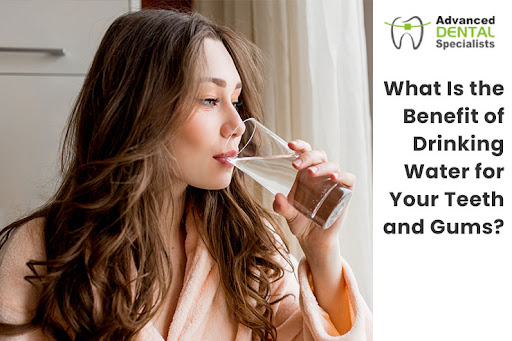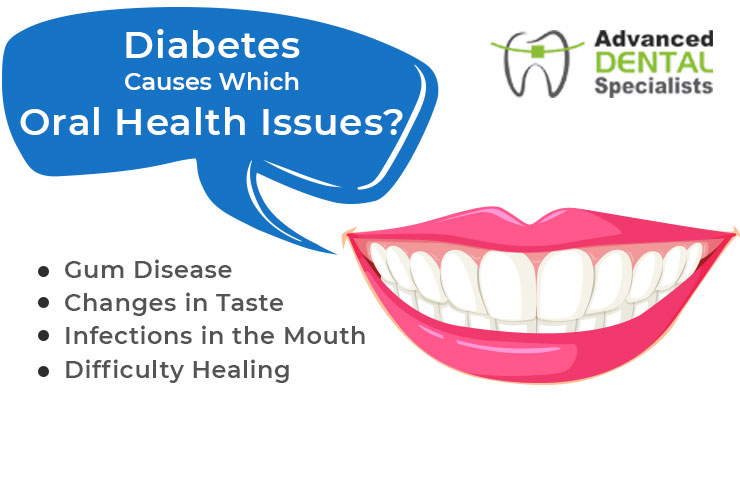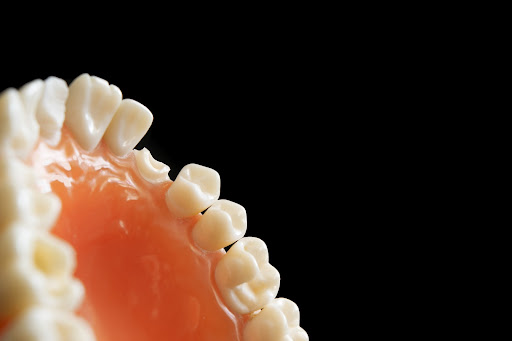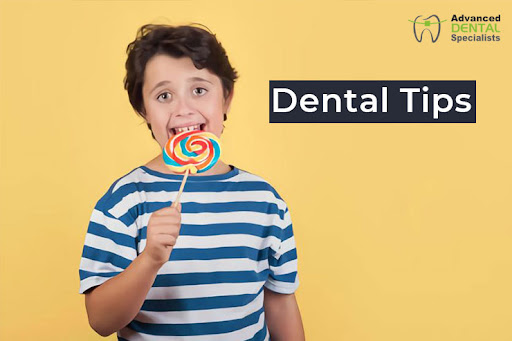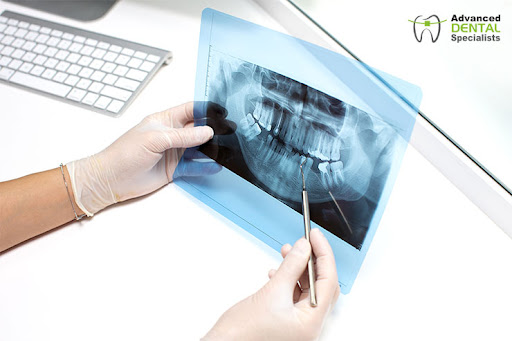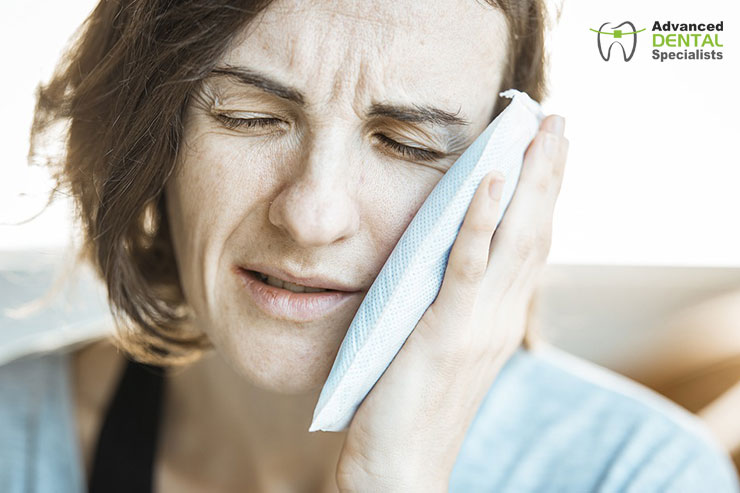At Advanced Dental Specialists, we understand the importance of hydration in maintaining a healthy mouth. Water is always beneficial to your teeth and gums. Drinking water, along with regular brushing and flossing, is one of the most effective ways to prevent cavities and gum disease. Simply drinking water throughout the day can prevent plaque buildup and protect your tooth enamel—read on to learn more.
Drinking water helps to keep your mouth clean.
Drinking water helps to prevent cavities and gum disease by rinsing away harmful bacteria and food debris. Water is beneficial to your teeth because it keeps your mouth clean! Plaque cannot form in a clean, hydrated mouth. Acids in plaque, food, and beverages can erode tooth enamel, but drinking water dilutes acids, which helps protect your teeth. A simple glass of water can clean away stains, reduce bacteria that cause bad breath, and protect your tooth enamel. The more water you drink, the brighter your smile will be!
Drinking-Water Helps with Dry Mouth
Dry mouth, also known as xerostomia, is a condition in which plaque accumulates because the mouth does not produce enough saliva. Saliva is essential in helping to protect your teeth and gums. Saliva, like water, washes away food debris and combats cavity-causing bacteria. Acid from plaque buildup damages teeth and causes lesions that can lead to cavities, but saliva helps to prevent plaque acid attacks. Minerals in your saliva also aid in the strengthening and rebuilding of tooth enamel; without enough saliva, your teeth are more vulnerable to damage. Water keeps your mouth hydrated and stimulates saliva production.
Drinking-Water Aids in the Restoration of Tooth Enamel
Another reason that drinking water is beneficial to your teeth is remineralization. Your tooth enamel contains more minerals than your bones. Drinking water containing trace minerals and fluoride aids in the restoration and strengthening of your enamel. Minerals and fluoride, on the other hand, are typically found only in tap water and mineral water. Filtered and bottled water frequently lack essential minerals, whereas distilled and reverse osmosis water contains no minerals or fluoride at all. If you prefer filtered or distilled water for its purity, ask Advanced Dental Specialists about scheduling a series of fluoride treatments at your next appointment.
